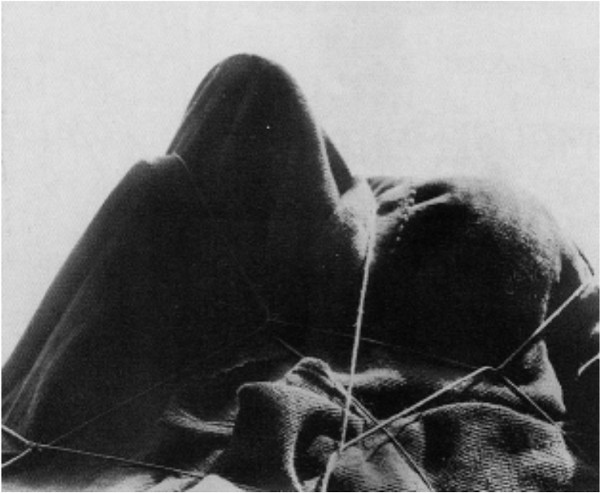Dorothy Stein: Ada: A Life and a Legacy (1987)
Filed under book | Tags: · biography, computing, electricity, history of computing, history of science, mathematics, science, technology

In this engrossing biography, Dorothy Stein strips away the many layers of myth surrounding Ada Lovelace’s reputation as the inventor of the science of computer programming to reveal a story far more dramatic and fascinating than previous accounts have indicated. Working with original sources, Stein clears up a number of puzzles and misinterpretations of Ada’s life and activities.
Augusta Ada Byron, Countess of Lovelace, was the only daughter of the poet Lord Byron and the close friend and associate of a number of the foremost scientific, literary, and artistic figures of the early Victorian period. She enjoys a growing reputation today for her report on Charles Babbage’s Analytical Engine—considered to be the first computer. Yet Stein shows how the often self-serving Babbage conspired to create the legend, using the Countess to promote his projects and make exaggerated claims for his engine. By placing Lady Lovelace’s report in the social and cultural context in which it was written, she finds that, far from being a clear and masterly exposition of the structure and logic of the computer, it was a rather mystical tract that dwelt on the inventor’s outdated philosophy of mathematics, and his mechanistic view of theology and the workings of capitalist economics.
Ada’s own life is vividly told, often in her own words, as Stein weaves into her narrative excerpts from letters, memoirs, and little-known documents to create an account that is at once black comedy, detective story, psychological drama, and scientific explanation. She examines the barriers and opportunities that Ada faced as she strove to develop her ambitions and search for truths that would free her of that shadow of her mysterious father and her overbearing and manipulative mother.
Stein reveals a turbulent and complex woman who tries to run away, who marries and bears three children, attempts to bury herself in the study of mathematics, and to find herself in a career in music or in writing. Ada corresponds and associates with men as diverse as Dickens, Chadwick, Quetelet, and Wheatstone. She sickens and attempts to find the cause of her malady by exploring the fringes of several sciences. Her interest in the use of electricity to treat nervous disorders involves her in the controversies over mesmerism and phrenology, and turns her from Babbage to Faraday and to Andrew Crosse, the “electrician” whose work served as the model for Frankenstein. With Ada, Stein examines the roots of the fear, fascination, and mystic awe with which we still regard the impact of high technology upon ordinary life.
Publisher MIT Press, 1987
History of Computing Series
ISBN 0262691167, 9780262691161
321 pages
The Shape of Experiment (2006)
Filed under proceedings | Tags: · art, art history, experiment, experimental art, history of science, history of technology, science, technology

What is the result of recent studies on the history of experiment? How has our image of science been changed since Ian Hacking’s statement, “experimentation has a life of its own,” turned into a catch phrase for investigations into the history of science? What is the lesson to be drawn from the studies following Steven Shapin’s and Simon Schaffer’s Leviathan and the Air Pump (1985) and Peter Galison’s How Experiments End (1987)?
In trying to answer these questions, this conference did not aim at contributing to a more developed philosophy of scientific experimentation, nor did it try to return to the grand narratives on the history of science. Rather, the goal of this conference was to identify characteristic configurations within in the history of experimentalization from 1800 to the present. The guiding question was: what are the typical forms of experiment that emerged in the separated and shared history of science, technology, and the arts?
Conference: The Shape of Experiment, Berlin, 2-5 June 2005
Publisher Max-Planck-Institute for the History of Science, Berlin
Preprint series, No. 318
235 pages
conference (prepared by Julia Kursell, Sven Dierig, and Henning Schmidgen)
publisher
Michel Callon, Pierre Lascoumes, Yannick Barthe: Acting in an Uncertain World: An Essay on Technical Democracy (2001/2009)
Filed under book | Tags: · democracy, politics, science, technology

Controversies over such issues as nuclear waste, genetically modified organisms, asbestos, tobacco, gene therapy, avian flu, and cell phone towers arise almost daily as rapid scientific and technological advances create uncertainty and bring about unforeseen concerns. The authors of Acting in an Uncertain World argue that political institutions must be expanded and improved to manage these controversies, to transform them into productive conversations, and to bring about “technical democracy.” They show how “hybrid forums”—in which experts, non-experts, ordinary citizens, and politicians come together—reveal the limits of traditional delegative democracies, in which decisions are made by quasi-professional politicians and techno-scientific information is the domain of specialists in laboratories. The division between professionals and laypeople, the authors claim, is simply outmoded.
The authors argue that laboratory research should be complemented by everyday experimentation pursued in the real world, and they describe various modes of cooperation between the two. They explore a range of concrete examples of hybrid forums that have dealt with sociotechnical controversies including nuclear waste disposal in France, industrial waste and birth defects in Japan, a childhood leukemia cluster in Woburn, Massachusetts, and Mad Cow Disease in the United Kingdom. They discuss the implications for political decision making in general, and they describe a “dialogic” democracy that enriches traditional representative democracy. To invent new procedures for consultation and representation, they suggest, is to contribute to an endless process that is necessary for the ongoing democratization of democracy.
First published as Agir dans un monde incertain: Essai sur la democratie technique, Editions du Seuil, 2001
Translated by Graham Burchell
Publisher MIT Press, 2009
Inside Technology series
ISBN 0262033828, 9780262033824
287 pages
review (Science & Technology Studies, Michael P. Mueller)
review (Nathan Young, Canadian Journal of Sociology)
review (Clayton Littlejohn, NDPR)

